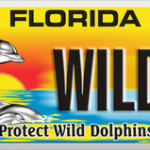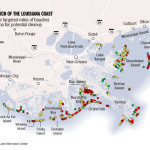A friend of mine from Japan used to like to begin his grad school seminar talks with a favorite recipe for preparing whale meat. His first slide would feature a steaming hot bowl of soup with sliced layers of meat dangling over the side. He was not a joker. He did these things to shock students into a new perspective. My friend wasn’t ready to begin any discussion of Japanese fisheries policy until people understood that whales are a cultural resource in Japan, a downright delicious cultural resource. His approach was provocative. It stole the high ground on the whaling issue, and put conservation minded graduate students in a frustrating position of cultural criticism.
The Japanese whaling fleets and their managers are not shy to adversity. Even now, they assemble for a scientific hunt to kill 50 humpback whales off the coast of Antarctica. Greenpeace has sworn to intervene. The organization says its protest ship will chase the four-vessel fleet to the southern ocean.
This should be interesting. More about the story here and here.






If it’s culturally delicious, well, it’s ok then. So will certainly be cannibalism, which brings strength to warriors who eat their opponents, it’s a very long standing cultural tradition. We should revive it to check if it is delicious.
As the Japanese fleet thinks killing 50 of the (at most) 40.000 remaining humpbacks is alright, let’s remind ourselves that this proportion is equal to 8.125.000 humans being killed in a disaster or war, this would certainly be noticed by some people belonging to the human community. As humpbacks communicate with each other at long distances, will the remaining whales notice the disappearance of the 50 killed this year?
I do hope labour wins the upcoming Australian election and keeps its promise to send its Navy to deal with this fleet.
If last year’s fiasco is anything to go by, then Greenpeace with just trail and protest a bit, not intervene. The group who are pursuing with plans to intervene are Sea Shepherd. They’re awful. There’s some suggestion that they rammed the Nissan Maru last year, and they did throw acid and broken glass at Japanese sailors. There’s protesting, then there’s idiocy.
I’m not saying I approve of Japan’s arrogant and unnecessary whaling practices, of course.
In the bad news department, no quota culls for bluefin tuna in the Mediterranean : http://news.bbc.co.uk/1/hi/sci/tech/7101745.stm
Well then, Japan will have to abandon one of its downright delicious cultural practices in the next few years: no more fat tuna belly sushi once all the tuna that provide ōtoro have been hunted to extinction.
Peter, as Sophie has said, some cultural conventions are just not worth keeping.
Also there can’t be that much of that culture left in japan, when part of the whale meat gets used to make cat and dog food, since there are not enough customers.
Oh, and regarding Greenpeace and Sea Shepherd, I’m rooting for the “Eco Terrorists”, I was always fond of the underdogs. ;)
Remember reading that whale meat has a lot of heavy metals and other
not so healthy incredients because they’re on top of the foot chain
and end up with a lot of pollution. I suppose the Japanese customers
know this too.
Most Japanese are in denial about just how endangered whales are. Whenever I raise that point, they ignore it and press on with their insistence that it just tastes so good. (It’s like liver, FWIW.) Case in point: One young Japanese woman told me that when gaijin can be enticed to eat whale meat, they always find it delicious. I replied “I’m not denying that; but what are you going to eat when you’ve hunted the whale to extinction?”, and she promptly burst into tears and sobbed, “Why are you being so mean to me?!”
My local sushi chef just doesn’t listen when I raise the issue of extinction with him; he someone serenly believes that there will always be whales and bluefin tuna to eat–and this is a country where the people like to think of themselves as close to nature. The cognitive dissonance really is appalling.
Found an article similar to the one mentioned by ‘nn’. http://www.peopleandplanet.net/doc.php?id=1973
Note that it is coastal dolphins, porpoises and small whales that are getting the high mercury levels.
A krill and small fish eater like a humpback is the top of the food chain but they target the bottom, leaving out the many intervening levels that cause the concentration.
For many whales, the mothers’ milk provides significant toxin levels.
I have seen allegations in the media that beluga whales in the St. Lawrence are so contaminated that their bodies qualify for hazmat handling.
This WWF link details beluga and orca contamination from chemicals. http://tinyurl.com/25pal6
I wonder why it is that I don’t give a damn about Japanese cultural traditions when it comes to stuffing their bellies? Half of Africa is starving to death and a pretty good proportion of the population of India likewise, but those poor, poor Japanese demand to be allowed to carry on slaughtering whales, tuna etc., etc., (pretty much anything else that takes their fancy and can be labelled “cultural tradition”). With environmental degradation threatening us all, we are all having to make changes to our lives that “threaten” our cultural traditions (like giving up petrol guzzling and turning lights off at night!!!), so I really think that demanding that the Japanese look for something else to eat isn’t such a big deal!
There’s a video out there of a Japanese dolphin “harvest”.
They drag the dolphins, screaming and bleeding, behind trucks to the slaughter house, while schoolchildren wander by, laughing. Among other atrocities.
Fuck it, I’m with the Sea Shepherd on this one.
I seem to recall being told as an undergrad that Japan’s ‘tradition’ of eating whale meat only started after the second world war because of food shortages. And regardless of the timeline, there are traditions that should be preserved and those that should expire. This is one that should expire, soon, and not hide behind the disingenuous label of ‘scientific’ whaling.
PZ Myers states his case against whaling here:
http://scienceblogs.com/pharyngula/2007/11/the_whaling_lie.php
I agree it is true that fisheries have forced bluefin tunas, right whales, blue whales, and others towards the edge of extinction. However, any change in federal fisheries policy must come from within Japan. Opposition voices must be heard from within the country.
To evaluate the issue critically, I think we need to know more about the South Pacific humpback population, status, and sensitivity to perturbation. Is 50 whales a problem? How may die annually from other anthropogenic causes, like ship strikes off the US coast? How do these factors compare?
Peter, I agree that other anthropogenic causes of humpback deaths should be monitored and prevented. But as I stated 50 out of a maximum population of 40.000 (I’ve seen estimates ranging between 30.000 and 40.000) is a big number for slow breeding creatures. And it means 50 *more* than other human-related deaths.
I would state that no endangered species should be killed to fullfil human needs, delicious or not. And yes, I’m also looking at the French d***heads who decimate ortolans for culinary purposes. All cultures certainly have acts to clean up.
What’s the deal with all this “slaughtering” business and comparing whaling to cannibalism? These are mammals, no more and no less fit for eating than other mammals (and all mammal-eating ought then to be compared to cannibalism).
Killing endangered whales is bad. Not because they are whales, but because they are endangered. I’d be careful though about comparing the killing of 40 humpback whales to the killing of 8 million humans… simply because we humans wouldn’t hesitate for a moment to hunt 8 million animals from a stock of more than 6,5 billion =)
It’s the very fact that there are so few of them that the same percentage has an even worse effect on the species.
If you want to argue that it’s inherently wrong to eat other mammals (or all meat for that matter) I can sympathize with that. But picking and choosing between them based on supposed intelligence seems to me to be disingenuous. Pigs feel just as much pain as dogs and dolphins do.
Just don’t kill endangered species and don’t create new endangered species by overfishing/hunting.
What’s the deal with all this “slaughtering” business and comparing whaling to cannibalism? These are mammals, no more and no less fit for eating than other mammals (and all mammal-eating ought then to be compared to cannibalism).
Killing endangered whales is bad. Not because they are whales, but because they are endangered. I’d be careful though about comparing the killing of 40 humpback whales to the killing of 8 million humans… simply because we humans wouldn’t hesitate for a moment to hunt 8 million animals from a stock of more than 6,5 billion =)
It’s the very fact that there are so few of them that the same percentage has an even worse effect on the species.
If you want to argue that it’s inherently wrong to eat other mammals (or all meat for that matter) I can sympathize with that. But picking and choosing between them based on supposed intelligence seems to me to be disingenuous. Pigs feel just as much pain as dogs and dolphins do.
Just don’t kill endangered species and don’t create new endangered species by overfishing/hunting.
What’s the deal with all this “slaughtering” business and comparing whaling to cannibalism? These are mammals, no more and no less fit for eating than other mammals (and all mammal-eating ought then to be compared to cannibalism).
Killing endangered whales is bad. Not because they are whales, but because they are endangered. I’d be careful though about comparing the killing of 40 humpback whales to the killing of 8 million humans… simply because we humans wouldn’t hesitate for a moment to hunt 8 million animals from a stock of more than 6,5 billion =)
It’s the very fact that there are so few of them that the same percentage has an even worse effect on the species.
If you want to argue that it’s inherently wrong to eat other mammals (or all meat for that matter) I can sympathize with that. But picking and choosing between them based on supposed intelligence seems to me to be disingenuous. Pigs feel just as much pain as dogs and dolphins do.
Just don’t kill endangered species and don’t create new endangered species by overfishing/hunting.
What’s the deal with all this “slaughtering” business and comparing whaling to cannibalism? These are mammals, no more and no less fit for eating than other mammals (and all mammal-eating ought then to be compared to cannibalism).
Killing endangered whales is bad. Not because they are whales, but because they are endangered. I’d be careful though about comparing the killing of 40 humpback whales to the killing of 8 million humans… simply because we humans wouldn’t hesitate for a moment to hunt 8 million animals from a stock of more than 6,5 billion =)
It’s the very fact that there are so few of them that the same percentage has an even worse effect on the species.
If you want to argue that it’s inherently wrong to eat other mammals (or all meat for that matter) I can sympathize with that. But picking and choosing between them based on supposed intelligence seems to me to be disingenuous. Pigs feel just as much pain as dogs and dolphins do.
Just don’t kill endangered species and don’t create new endangered species by overfishing/hunting.
What’s the deal with all this “slaughtering” business and comparing whaling to cannibalism? These are mammals, no more and no less fit for eating than other mammals (and all mammal-eating ought then to be compared to cannibalism).
Killing endangered whales is bad. Not because they are whales, but because they are endangered. I’d be careful though about comparing the killing of 40 humpback whales to the killing of 8 million humans… simply because we humans wouldn’t hesitate for a moment to hunt 8 million animals from a stock of more than 6,5 billion =)
It’s the very fact that there are so few of them that the same percentage has an even worse effect on the species.
If you want to argue that it’s inherently wrong to eat other mammals (or all meat for that matter) I can sympathize with that. But picking and choosing between them based on supposed intelligence seems to me to be disingenuous. Pigs feel just as much pain as dogs and dolphins do.
Just don’t kill endangered species and don’t create new endangered species by overfishing/hunting.
What’s the deal with all this “slaughtering” business and comparing whaling to cannibalism? These are mammals, no more and no less fit for eating than other mammals (and all mammal-eating ought then to be compared to cannibalism).
Killing endangered whales is bad. Not because they are whales, but because they are endangered. I’d be careful though about comparing the killing of 40 humpback whales to the killing of 8 million humans… simply because we humans wouldn’t hesitate for a moment to hunt 8 million animals from a stock of more than 6,5 billion =)
It’s the very fact that there are so few of them that the same percentage has an even worse effect on the species.
If you want to argue that it’s inherently wrong to eat other mammals (or all meat for that matter) I can sympathize with that. But picking and choosing between them based on supposed intelligence seems to me to be disingenuous. Pigs feel just as much pain as dogs and dolphins do.
Just don’t kill endangered species and don’t create new endangered species by overfishing/hunting.
Ok, here a comment of more questions than answers …
What kind of science are they killed for?
(They say they kill them not for selling them, but for scientific purposes, right? The selling is just a “by product”, right?)
How statistically representative would that “sample” be?
Where have the previous results of the scientific whaling been published in a language different than Japanese, please?
Why has the Revised management Procedure not put into work, which would allow for the catch of not endangered whales (but, would you accept whales to be caught if not endangered?)?
For what I know, the scientific quota of the Japanese would have to be rediscussed and agreed upon, in such a case … am I wrong?
Why, if so delicious, the whale meat had to be sold, for a lesser price, to school cantines, in order to “get the children back to the roots of their culture”?
Wasn’t the meat tasty enough for the children to like it?
Strangely enough, all Japanese people I met, admit having eaten whale meat, but some liked it, some didn’t, and all told me they wouldn’t really care if there wasn’t any whale meat on sale again.
Another couple of questions:
Is killing the whales the only means to get to the scientifically needed information?
(of course not killing them would result in not having the “by-product” of meat)
Does your friend, by that demonstration, intend that the whaling in Japan is done for having the meat to eat? I thought it was done for scientific reasons? What if the meat was not so tasty?
By the way: Japan was brought back into industrial whaling, after the IIWW, to replenish it with meat for its starving population, but also to make it rise again into the rank of industrial nations, by Gen Mac Arthur. Japanese of the IIWW generation remember very well, and greatfully, the whale meat eaten at school!
What if the meat had to be given away for free?
So people would have their meat … would the scientific whaling still be interesting?
Just some questions going round my mind …
I have it on good authority that whale meat gives you the runs big time. If loose motions are so important to Japanese, then eat oilfish & escolar I say.
Yubi, yes, my friend would contend that scientific whaling is done to substantiate takings for human consumption. These are good questions. I will try to contact some colleagues at the IWC for more answers.
Let me get this straight: Is your Japanese friend saying (directly or indirectly …) that the Japanese government is lying?
For all those now giggling or laughing: Lying is no laughing matter in Japan …
Well, nevertheless, some humour: Japan Time
Absolutely not, Yubi. No lies here. Perhaps a misstatement on my part. I should restate from #17 that my friend would probably agree the results of scientific whaling could help dto substantiate sustainable population levels for a small fishery.
Personally, I don’t condone the hunt for whales. Admittedly, as a scientist, I am somewhat intrigued.